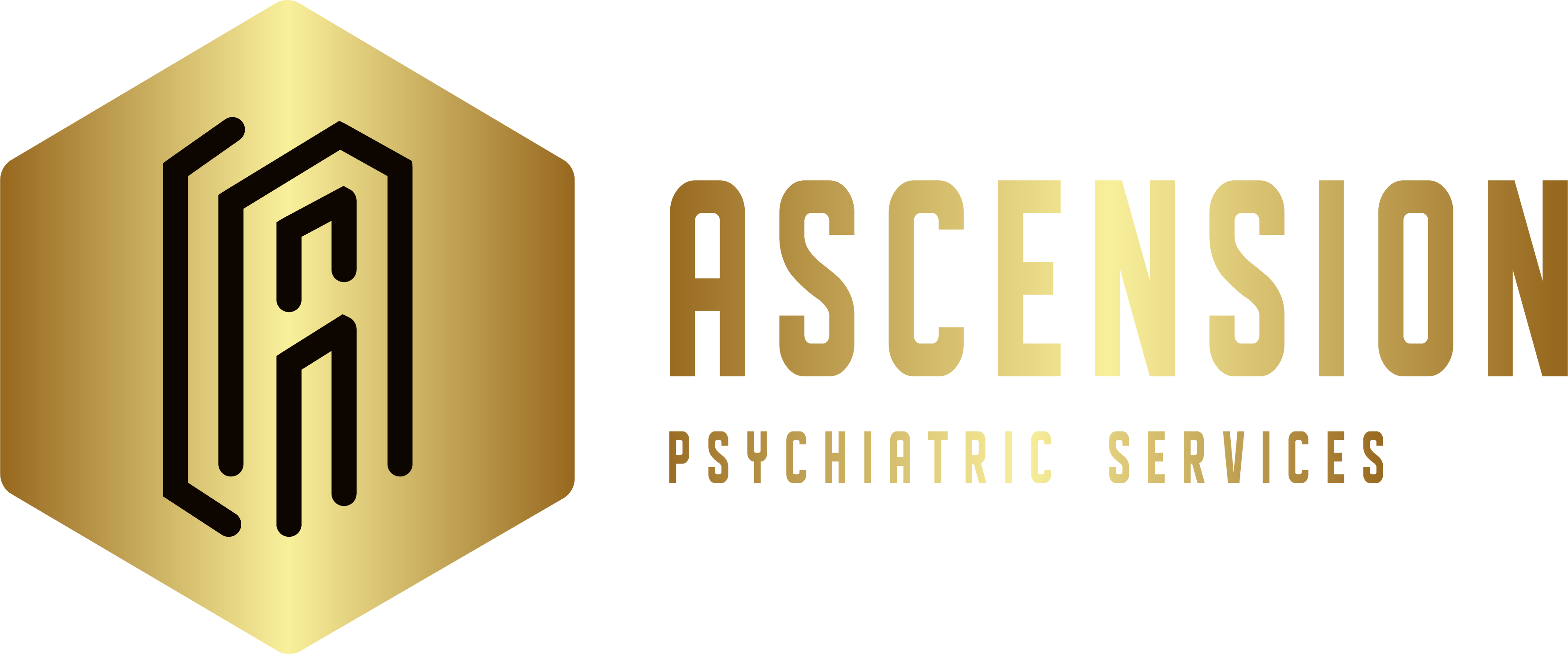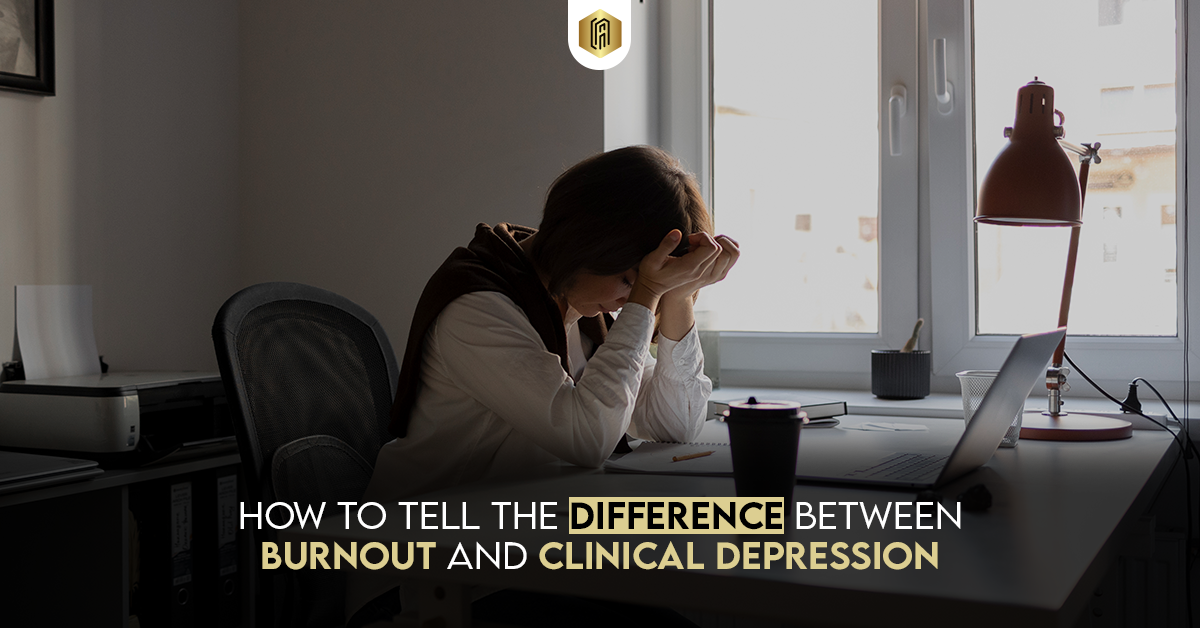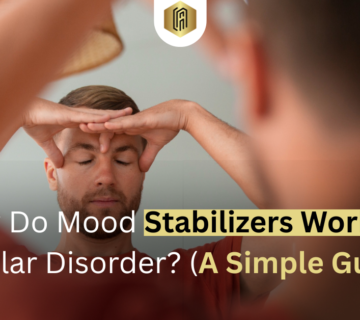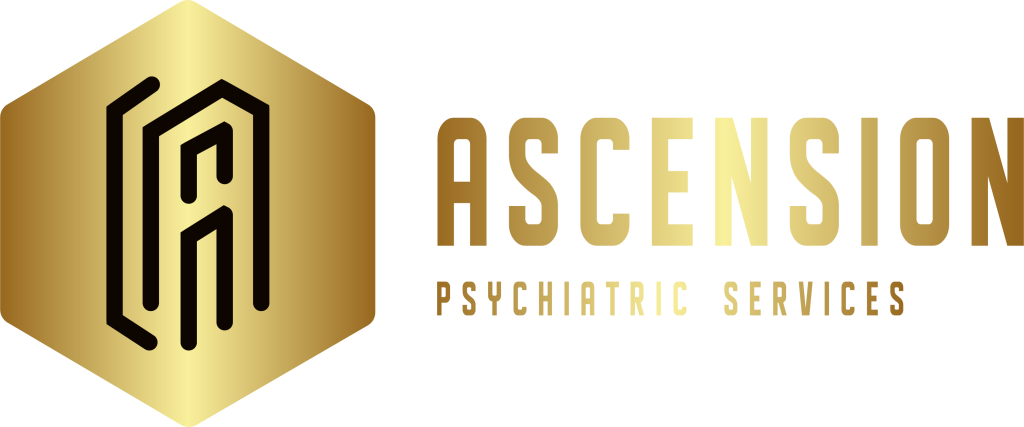Life can get pretty overwhelming, and it’s all too easy to brush off our issues as just stress. But what if those feelings never quite go away?
Burnout and major depression are two terms that people sometimes use as if they are interchangeable, but they are not.
While symptoms may be varying and yet similar, differentiation between the two is key to getting the kind of support and care required.
If you’ve been feeling exhausted and uninspired or feeling cynical, then you’re in the right place.
Now, let’s compare the features of burnout to major depressive disorder, because knowing the difference may change everything.
To discuss your symptoms, please reach out to Ascension Psychiatric Services today to get professional advice.
What Is Burnout?
Burnout is a condition or state of emotional, physical, and mental exhaustion brought on by prolonged and/or excessive stress.
It usually relates to one’s work or role as a caregiver, becoming overwhelmed, emotionally drained, and unable to continue meeting relentless demands.
Signs of burnout are:
- Always feeling worn out despite sleeping enough
- Becoming detached or cynical when it comes to work or responsibilities
- belonging to something or having work be rewarding
- Feeling upset or angry easily
- Problems with sleeping
Burnout usually comes on slowly, piling up over time until it feels too much to handle.
And while it’s a serious issue, burnout often relates to the things that fill our calendars, like super busy work or caring for others all the time.
Here’s a takeaway: Burnout is defined as the state of being stretched too thin by external circumstances.
What Is Clinical Depression?
Clinical depression does not, therefore, equate with “worn out” as in the case of burnout
It is technically referred to as major depressive disorder.
A medical condition affecting mood, thoughts, and physical well-being, usually without clear or direct provocation.
It is not something that can just be “channeled through” or fixed with a couple of days off.
Signs of clinical depression are:
- Persistent feelings of sadness or emptiness that last for weeks
- No interest in favorite hobbies anymore
- Much sleep or very little at all
- Feeling hopeless, worthless or guilty
- Trouble concentrating or making decisions
- Tired all of the time, aches, and very low energy
Depression is all-encompassing and not situational like burnout; it could relate to anything, either work or even relations, etc.
Another key takeaway: Clinical depression usually has more internal sources like imbalances in chemical levels within the brain or genetic predispositions and would require an individual treatment plan.
How Do Burnout and Depression Overlap?
Exhaustion and burnout may often be mistaken for clinical depression since they may superficially appear to be quite alike.
Indeed, both can leave you exhausted and demotivated.
Yet, systematic examination can untangle the commonalities between them.
- Burnout is situational, so when the setting shifts or the pressing mood eases, like having a long rest, sharing work, or finding a new job, it tends to go away.
- Depression, on the other hand, persists even if you take a holiday or remove the external stress. There may be no “obvious cause” for its presence, making it even harder to shake without proper help.
If you’re not sure what you’ve got, time is also an essential criterion for considering said symptoms.
For example, if one experiences burnout, they usually get some respite over a weekend; otherwise, non-stop negative emotions imply depression.
Can Burnout Lead to Depression?
Yes. Burnout can surely lead to or worsen depression if it goes unattended.
The human brain and body may, over the long term, be unable to handle continual exposure to stress, and this then exposes them to a condition such as clinical depression.
This may be the reason for early intervention.
Asking for help before it’s way too late may stave off serious mental health issues.
How to Heal
Knowing the difference between burnout and depression is only step one. Step two is figuring out what support you might need; there’s no shame in reaching out for it.
Here are a few steps one could take:
-
For burnout:
- Create clear boundaries between work and personal life
- Check in with yourself regularly
- Delegate tasks or ask for help as and when needed
-
For clinical depression:
- Book an appointment with a mental health professional
- Discuss options for treatment – therapy or medication
- Focus on very small, manageable steps to gain a little sense of control.
Our caring professional can help lead you through; no harm in just starting that conversation.
Why You Should Act Now
If any part of this has resonated with you, then now might be the time to reach out for professional help.
Burnout and clinical depression are not the same, but they do both require attention and care.
It’s what we do at Ascension Psychiatric Services: provide specialized mental health support.
Don’t wait for things to spiral. Contact us today.
FAQs
Which of the following best describes burnout and how it differs from depression?
Burnout comes from an external stressor – work, and it’s situational. Depression is a persistent medical condition not tied to one cause.
What is the difference between burnout and mental health issues?
Burnout represents generalized work-related exhaustion; whereas, other psychological problems related to depression, anxiety or other such matters may encompass all aspects of life.
Is there a correlation between burnout and depression?
Burnout, untreated, could increase the risk of developing depression over time.
Do I have burnout, or am I mentally ill?
If rest doesn’t help or if the sadness doesn’t go away and stays then it might be something deeper like depression. Professional diagnosis is essential.






No comment